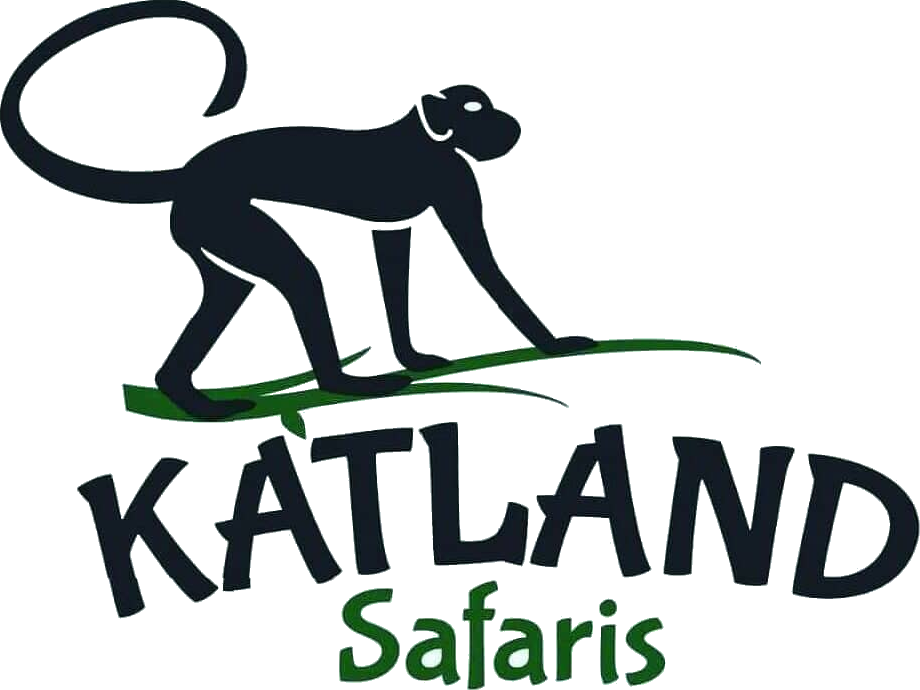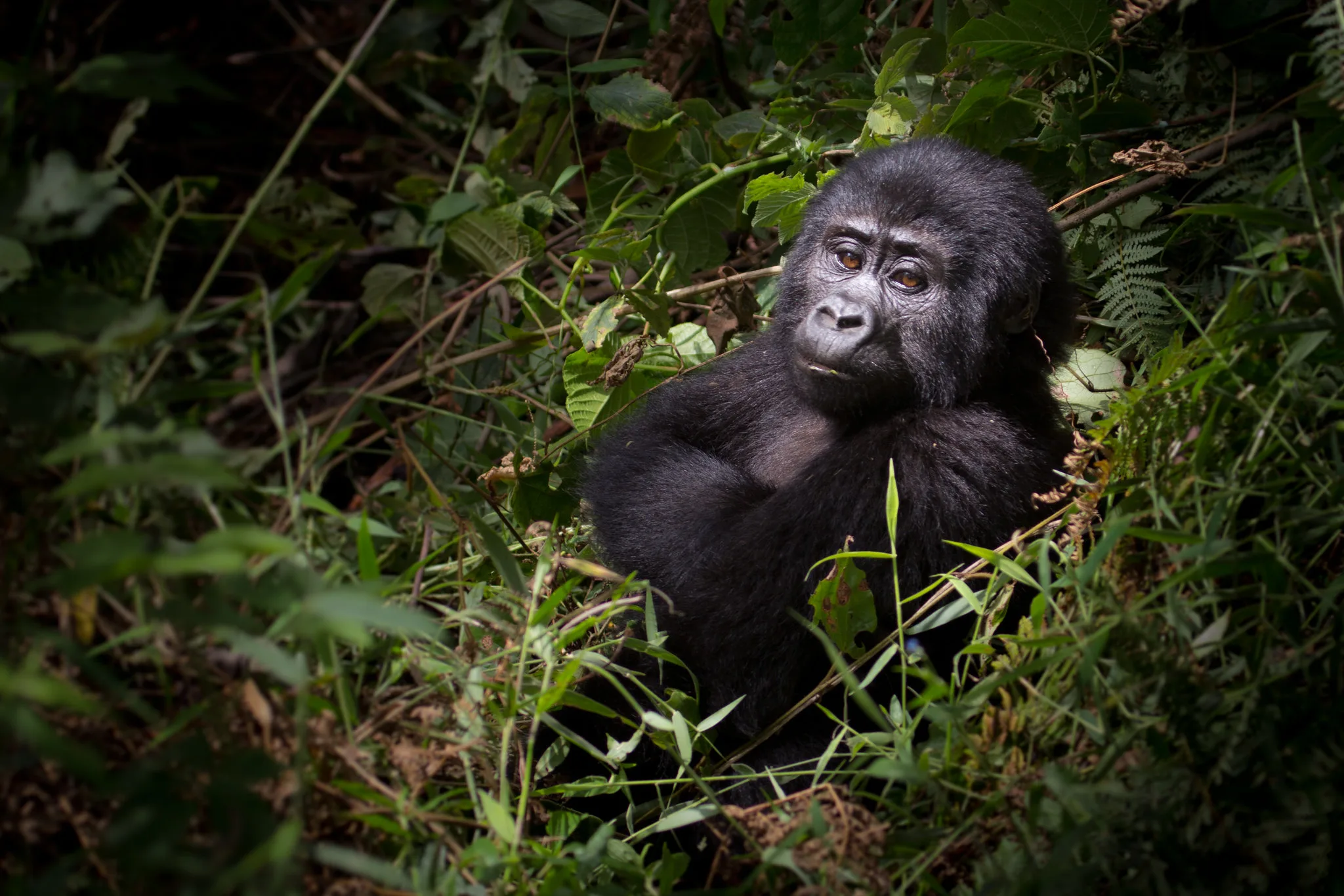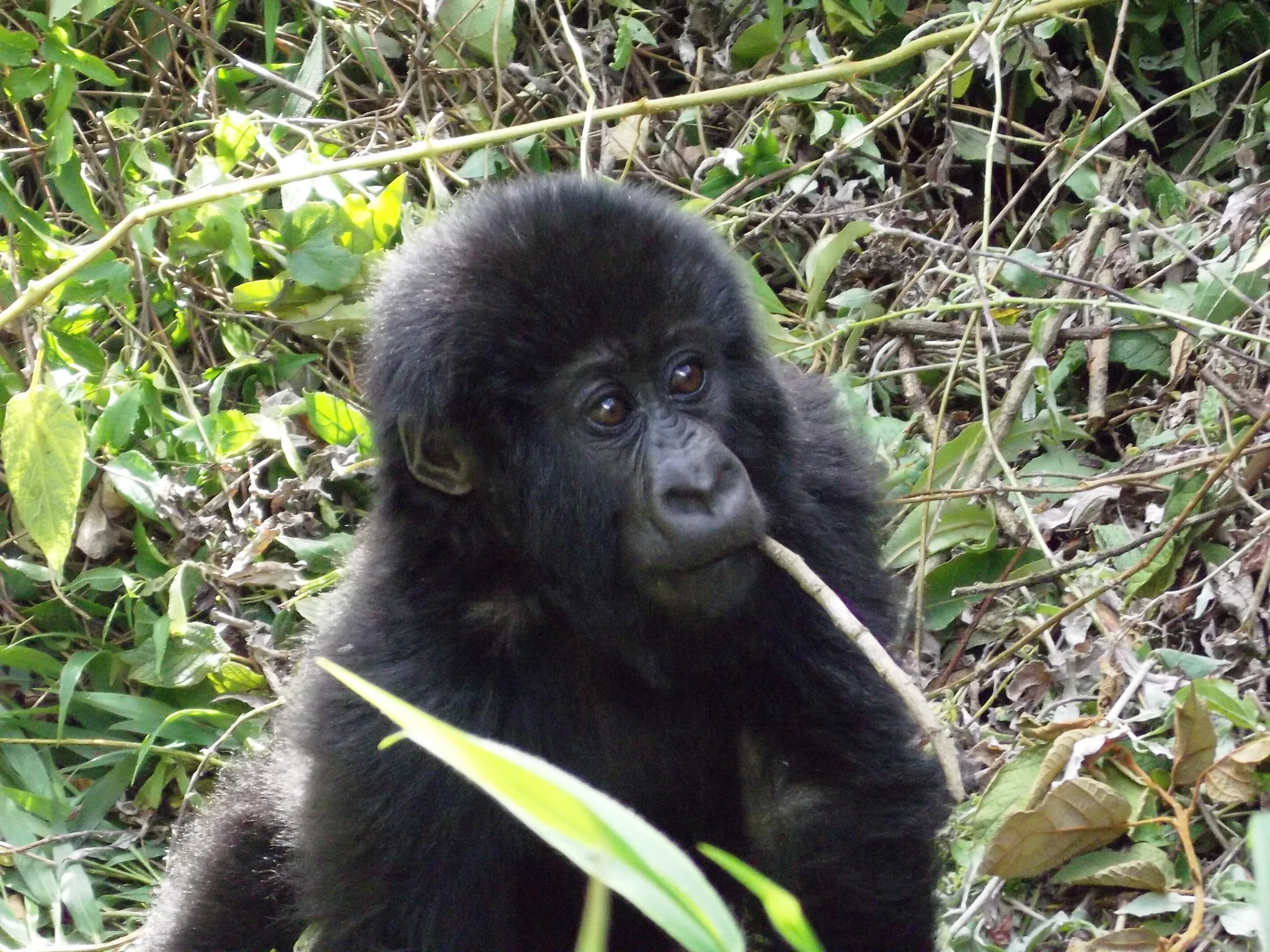
Uganda Primate National Parks reopen with strict SOPs
Uganda Primate National Parks reopen with strict SOPs
Procedures for Tracking Chimpanzees and Gorillas in Uganda
In order to prevent the spread of the virus, the Ugandan government has established standard operating procedures (SOPs) that visitors interested in seeing the primates must adhere to. These SOPs affect a wide range of primate species, including chimpanzees, mountain gorillas, golden monkeys, and others.
At the designated briefing areas, personnel and guests are required to take their temperature and wash their hands or use hand sanitizer.
Once each tourist has been allocated a gorilla family to monitor, they will meet again in smaller groups of no more than eight for debriefing and briefing.
No tourist, employee, or porter will be permitted to track if they are found to be unwell during the briefing. Anyone exhibiting symptoms of the flu, as well as those claiming to have diarrhea, stomachaches, or malaria, falls into this category.
Masks are mandatory for all visitors, employees, and trackers.
No more than eight (8) visitors are permitted to accompany a gorilla group on any given day.
Each group of chimpanzees may only have six(6) visitors following them at once.
During this time, visitors to the park must maintain a minimum distance of 10 meters from the apes.
When possible, the designated UWA guides will keep a two-meter social distance between themselves and the visitors they are following.
Everyone in the party is asked to wash their hands once again before the gorilla and chimpanzee viewing begins.
In order to save the workload for the porters, travelers should only bring minimal equipment on their tracking adventures.
There have been reports of negative side effects from wearing masks for extended periods of time at high elevations. Tourists are encouraged to take regular pauses throughout the trip to breathe fresh air. Social distancing must be firmly adhered to throughout these intervals.
In the event that a tourist or team member gets ill while on the field, UWA personnel are required to follow the standard procedures for medical evacuation and first aid.
Recreational Opportunities in Uganda’s Primate National Parks
Follow the Trail of the Gorillas
Nearly half of the world’s mountain gorillas call Bwindi home, and the park has welcomed tourists from every corner of the globe. We buy gorilla tracking permits from the Uganda Wildlife Authority (UWA) on behalf of our clients. The cost per person is 800 USD for non-residents, 700 USD for foreign residents, and 300,000 Uganda shillings for East African citizens. Permits must be booked in advance.
Uganda Primate National Parks
The Habituation Experience of Gorillas
When you participate in a Gorilla Habituation Experience, instead of the typical one-hour experience, you get to spend four hours in proximity to mountain gorillas. Because it provides a chance to learn more about mountain gorillas, this experience is one of a kind. It is suggested to schedule at least 3-4 months in advance for the gorilla tracking experience, which involves a party of 4 guests following a specific group of semi-habituated gorillas.
Locating and acclimating to golden monkeys
You may find this activity in Mgahinga Gorilla National Park. Each individual must pay USD140 for a habituation permit in order to monitor golden monkeys, and USD100 for a tracking permit. Upon arriving at the park headquarters, you may make reservations for both activities.

Hikes in the great outdoors
While you’re at the Camp, they can set you up with nature hikes in the woods. Join a local guide as they lead you into the forest, where you can see a wide variety of flora and fauna, including monkeys, birds, and trees. A guided trek to Bwindi wetland and a waterfall are also part of the package.
Cultural contacts with the Batwa Pygmies
Before the advent of gorilla tourism and conservation efforts, the Batwa were the native inhabitants of the area. Outside of the parks, you may find Batwa villages that sometimes hold performances showcasing their art, language, dances, beliefs, and customs.
Uganda Primate National Parks
Can I go on my gorilla and chimpanzee expedition right now?
Although we are still waiting for the airport to open for international travelers, it is now feasible to conduct your gorilla and chimpanzee trip because Uganda’s primate national parks are open. Visitors from within Uganda may visit Bwindi Forest National Park to embark on a hike with mountain gorillas or Kibale Forest National Park to see chimpanzees.
The widespread spread of the COVID-19 virus meant that many safaris had to cancel their plans, and many tourists who had planned to visit Uganda were unable to do so because of the quarantines and other travel restrictions. Since many people were unable to go to Uganda at this time, their licenses to participate in primate activities, such as gorilla, chimpanzee, and golden monkey tracking, had already expired.
Considering that the worldwide epidemic had already begun when travel was suspended due to the COVID-19 pandemic, the Uganda Wildlife Authority had to ease its rescheduling policy, allowing several travelers who had already made reservations to transfer their journeys to future dates when travel is once again safe.
How the COVID-19 Pandemic Affected Gorilla and Chimpanzee Trekking Permits Will Be Refunded or Cancelled
If the COVID-19 pandemic disrupts the plans of those who have already purchased permits to visit gorilla and chimpanzee habitats, up until December 2022, individuals have the opportunity to reschedule twice, either forward or backward, at whatever date they want, based on availability, according to the Uganda Wildlife Authority.
Due to the recent opening of the Gorilla Habituation Experience, Chimpanzee tracking, Golden Monkey tracking, and Gorilla tracking for businesses, permits may be rescheduled to dates around 2020 if originally intended for 2021. To get all the information you need, including how to contact us, go here.
Filming with gorillas and chimpanzees has also picked back up in Uganda.|Uganda Primate National Parks
The reopening of Uganda’s primate national parks has made it feasible to shoot chimpanzees and mountain gorillas in the country. Among the most thrilling adventure activities is filming gorillas and chimpanzees in Uganda. This will allow you to learn about these big apes and raise awareness about the need to protect them. Bwindi Forest National Park and Mgahinga Gorilla National Park are two locations in Uganda where mountain gorillas are filmed.
Kubale Forest, Budongo Forest, Queen Elizabeth National Park’s Kyambura Gorge, and Murchison Falls National Park are among the locations used to film Chimpanzees. To shoot in Uganda’s national parks with primates like mountain gorillas and chimpanzees, you must first get the necessary permits. Please get in touch with us so that we may assist you in obtaining the necessary documentation to shoot Chimpanzees and Mountain Gorillas in Uganda.
New photography and filming fees were instituted by the Uganda Wildlife Authority for all Ugandan national parks, including those protecting primates. The Uganda Wildlife Authority has introduced new filming costs for 2020–2022, which went into effect on June 1, 2020. These fees consist of 40% of any activity charge and 10% for monitoring, which is to cover the cost of keeping an eye on all filming activities and any potential harm that may occur in a particular park.
Each member of a film crew is required to pay $800 for the gorilla permit, with an additional $280 serving as 40% of the permit. This amount covers the ability to film the mountain gorillas for one hour during their encounter in Bwindi and Mgahinga National Parks. Those interested in shooting mountain gorillas for four hours in Bwindi Forest National Park would need to pay $1500 for the gorilla habituation permit and $700 as 40% of the permit.
The Uganda Wildlife Authority will collect 40% of the fees for chimpanzee permits in Kibale Forest National Park and chimpanzee permits in Kyambura Gorge in Queen Elizabeth National Park in order to approve chimpanzee films in these locations. You will need to pay for the chimpanzee licenses for the regions of interest and the 40% monitoring cost separately, just as when filming gorillas.
While shooting in Uganda during the current COVID-19 pandemic, everyone on the set must adhere to the standard operating procedures and take the necessary measures to avoid contracting the virus, as mandated by the Ugandan government.
The GORILLA BABY BOOM IN BWINDI, which follows the lives of gorilla families in Uganda’s Bwindi Forest, is now filming its fifth season and features the birth of a fifth baby in as many weeks.
Within the last six weeks, five baby gorillas have been born.
Despite the challenges posed by COVID-19, Bwindi Impenetrable National Park has achieved yet another amazing milestone. The most recent addition to the park’s newborn gorilla population is Buhoma, the fifth in as many weeks. The Rushegura gorilla family now has 18 members, including this youngster that was born to Adult Female Ruterana. With this birth, the total number of babies born in the Bwindi forest in the last six weeks reaches five.
The Rushegura family, who have been fortunate enough to have numerous children this year, were also observed giving birth in the park’s southern section. In April 2020, two mountain gorilla infants were born in the Muyambi and Nshongi groups in the Rushaga area. In contrast, the Muyambi tribe welcomed its first tourists in 2019. The family consists of six individuals. Following the tragic loss of Rafiki, a silverback in the Nkuringo area, several remarkable events transpired.
A debt of gratitude is due to the Bwindi and Uganda Wildlife Authority conservationists. Are you thinking of shooting monkeys in Uganda? For the last eight years, our Ugandan firm, Film Crew Fixers, has assisted production firms and filmmaking companies throughout East Africa. With the help of our expert crew of local fixers and driver guides, we can take care of any fixer service that you may need. We have the necessary relationships with various service providers and government authorities to expedite the processing of accreditation and filming permissions. Kindly reach out to us at this location.
Planning Your Visit to Uganda to See Gorillas
With Katland Safaris on your side, booking your gorilla permits in Uganda online is a breeze and won’t cause any worry or hassle. With over 300 reviews on TripAdvisor, Katland Safaris has shown itself time and time again as the go-to destination for customized safaris.
A heads up, though: permits need prior booking, which means you’ll also need to secure your flights and lodging. It is highly recommended to book your safari in advance and provide a modest deposit to ensure all of your services, since permits are often in great demand, flights must be verified, and lodges may not be available.
Ideal Season to View Ugandan Primates
The pleasant weather in Uganda allows visitors to view and hike among primates at any time of year. If you are planning a trip to Uganda to see gorillas or chimpanzees, you should do it in the dry months of June, July, August, September, December, January, and February.
When planning your Ugandan gorilla and chimpanzee trek, work with Katland Safaris. | Uganda Primate National Parks
Uganda, Rwanda, and the Democratic Republic of the Congo are all part of Katland Safaris’ incredible gorilla trekking adventures. Get in touch with us here for reduced packages and customized safaris; we’re prepared to adhere to all established SOPs to guarantee the safety of our customers when they travel in the midst of the COVID-19 pandemic.
Our ability to curate unforgettable experiences is a product of the cohesive team we’ve built over the years, which includes both youthful and dynamic employees, as well as seasoned and dedicated directors and managers who are native Ugandans. You may read about other people’s experiences on safari bookings and on TripAdvisor, where Katland Safaris has a lot of positive ratings.
Uganda Primate National Parks


